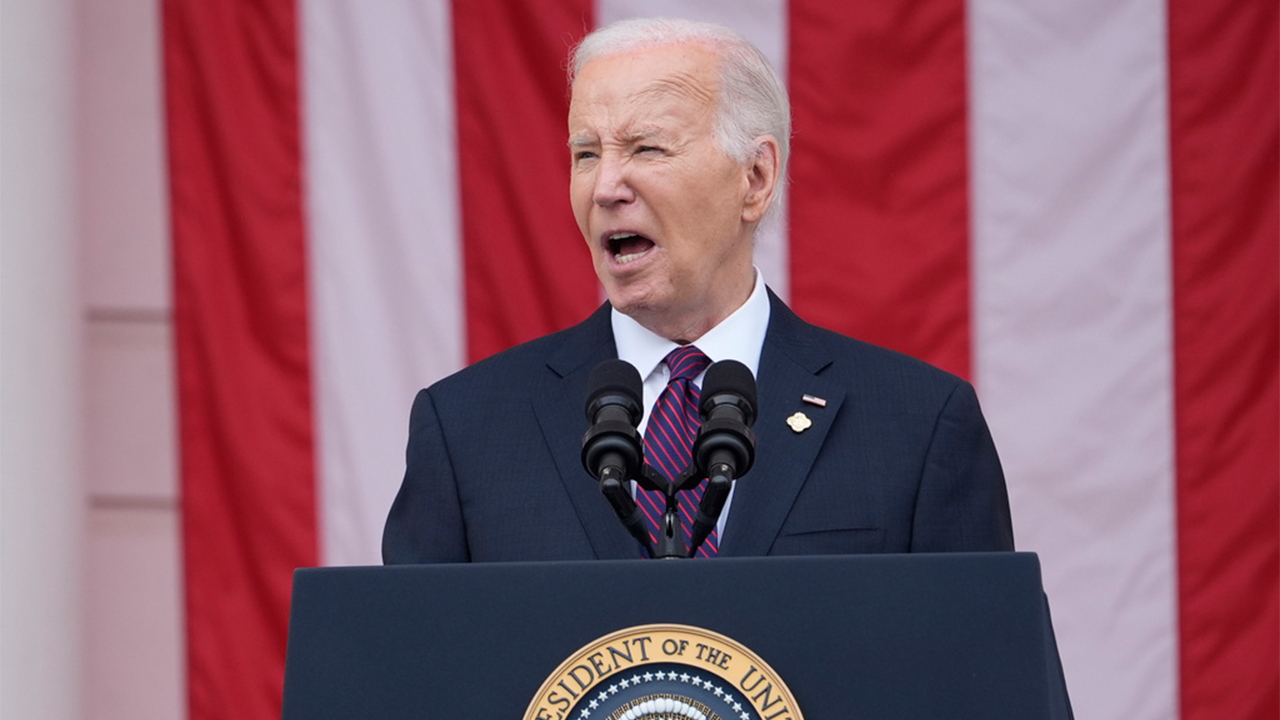North Carolina
NC Supreme Court says no new trial for man on death row

The North Carolina Supreme Court published a ruling Friday that a Black man on death row should not be given a new trial despite that he’d been sentenced to death by an all-white jury after prosecutors used a handout to strike Black people from the jury pool.
Russell William Tucker was sentenced to death in 1996 for killing a security guard outside a Kmart in Forsyth County. He has since challenged that conviction, arguing that prosecutors relied on racist jury strikes to send Black jurors home and ensure that those who decided his death sentence were all white.
The North Carolina Supreme Court disagreed. In a ruling written by Justice Phil Berger Jr., the son of the president pro tempore of the state Senate, the high court determined that their analysis of Tucker’s case was limited because he hadn’t raised juror discrimination issues in earlier appeals, and that his “newly discovered evidence” was insufficient to clear a procedural hurdle that could allow them to grant him a new trial.
Friday’s state Supreme Court ruling was rooted in a U.S. Supreme Court decision published in 1986, Batson v. Kentucky, which found that prosecutors picking a jury in a criminal case could not use peremptory challenges — dismissing jurors without valid cause — to exclude prospective jurors solely on the basis of race.
North Carolina’s Supreme Court was the last in the South to find a Batson violation. The first time it did so was in a in a May 2020 decision — written by the then-Democratic majority — that gave lower courts guidance on how to better assess racial discrimination claims in jury selection. In 2022, for the first time in state history, the high court struck down a conviction because of discrimination against a Black juror.
Advocates worried those wins would be reversed under the conservative majority that has assumed control of the court, a fear that looks increasingly well-founded as Republican justices continue to issue rulings that find no racial discrimination in jury selections.
Tucker’s claim was based in part on a handout that listed 10 reasons attorneys can cite to legally justify peremptory challenges. Tucker’s attorneys said prosecutors used that handout to strike jurors because of their race. Berger disagreed.
“The CLE [Continuing Legal Education] handout simply displayed legally permissible reasons for exercising peremptory challenges,” Berger wrote.
The other element of Tucker’s argument was based on a study conducted by two professors at Michigan State University’s College of Law. They researched jury selection in capital cases in North Carolina between 1990 and 2010, finding that African Americans were struck at a rate 2.25 times higher than other prospective jurors in Forsyth County.
Berger said the study was “unreliable and fatally flawed” because it “assumed racial animus in cases in which defendants did not make any such claim, or in which the trial court or appellate courts did not make or sustain any such findings.”
In a statement, Henderson Hill, an attorney and board member on the Center for Death Penalty Litigation, called Friday’s ruling a step backwards from those issued in 2020 and 2022.
“Even in cases where a defendant faces execution, the court appears determined to blind itself to glaring evidence of racial discrimination in jury selection,” Hill said. “Russell Tucker, a Black man, was sentenced to death by an all-white jury because prosecutors methodically and intentionally removed every potential Black juror. I am deeply disappointed that our supreme court has chosen to ignore the evidence and allow a racist death sentence to stand.”
Others said the ruling was proof the courts will not act to spare people from death row.
“Despite evidence of widespread discrimination, our state’s highest court will not stop racist death sentences from being carried out,” said Noel Nickle, executive director of the N.C. Coalition for Alternatives to the Death Penalty.
Nickle called on Gov. Roy Cooper to commute the death sentences of 136 people on North Carolina’s death row before he leaves office at the end of 2024. Click here to read an in-depth NC Newsline story on the death row clemency campaign.
Click here to read the ruling in State v. Tucker.

North Carolina
Tar Heel Traveler: Coal Glen mine disaster

On this day 99 years ago — May 27, 1925 — the largest industrial disaster in the history of North Carolina happened near the county line between Chatham and Lee counties, a coal mine explosion that killed 53 men.
Reporter : Scott Mason
Photographer : Sean Braswell
Web Editor : Joseph Ochoa
Posted
North Carolina
North Carolina State Police investigating fatal hit and run
ELIZABETH CITY, N.C. — State police in North Carolina said they were investigating after a fatal hit and run in Hertford.
Police said the incident happened overnight sometime between 9 p.m. and 6:15 a.m.
Two witnesses said they saw a man walking the road at around 9 p.m. 100 feet from where he was later found dead, according to police.
Chesapeake
Motorcyclist killed in crash on Hanbury Road in Chesapeake
8:22 PM, May 25, 2024
Police said the incident happened at the intersection of West Grubb and Don Juan, in Hertford North Carolina.
Officials have asked for the public’s assistance in this case, anyone with information regarding the incident is asked to contact the Elizabeth City Office at (252) 340-8240.
North Carolina
NC legislators continue to ignore teacher vacancy crisis • NC Newsline

In 2023 state policymakers were confronted with alarming data: teacher vacancies had hit record highs. Not only did 1 in every 18 classrooms lack a licensed teacher, but districts serving the greatest share of Black students and students from families with low incomes faced the greatest shortages. In other words, the teacher shortage had reached crisis levels, demanding a dramatic response from lawmakers.
Sadly, that response never came. Now the teacher vacancy problem has gotten worse.
At the 40th day of the 2023-24 school year, 6,006 classroom teaching positions were vacant, smashing the prior year record by 18 percent. This year, more than 1 in every 16 lacked a licensed teacher over a month into the school year.
These vacancies continue to be associated with the demographics of the district. Districts with more students from families with low incomes and districts with more Black students tend to experience higher teacher vacancy rates. The association has grown even more stark this year.
As a result, it’s disproportionately Black students and economically disadvantaged students who pay the price for lawmakers’ unwillingness to make the necessary investments to attract and retain certified teachers in every classroom.
Of course, all students suffer from teacher vacancies. And it’s not just the students assigned to an unlicensed teacher.
Teacher vacancies increase the demands on the teachers who have persisted in spite of state policymakers’ efforts to drive them from the classroom. Vacancies create larger class sizes. They require experienced teachers to assist untrained, novice teachers and to fill in when substitutes are nowhere to be found. This leaves our best teachers with less time to lesson plan, individualize instruction, assist less experienced colleagues, or to find regular opportunities to decompress from an increasingly difficult, stressful job.
As vacancies rise year after year, an increasing number of teachers are taking on more responsibilities to fill in the holes.

It should come as no surprise that North Carolina’s teacher vacancy problem has worsened. The 2023 budget failed to include any meaningful efforts to reverse the ongoing war on the teaching profession. In spite of the teacher shortage crisis, legislators cut public school budgets and provided meager pay raises of only 3.6 percent, barely keeping pace with inflation. Average teacher pay is 23 percent below the national average. Our schools remain among the worst-funded in America and our teachers continue to earn salaries that dramatically trail their peers in other industries.
Legislators know that teachers remain the most important in-school factor for boosting academic achievement. Yet they have instead chosen to prioritize a massive expansion of the state’s private school voucher program to benefit wealthy families already enrolled in private schools. While investments in teachers have been shown to boost academic performance, statewide voucher programs have produced unprecedented drops in test scores for voucher students.
The voucher expansion also sends a clear message to public school teachers: state leaders would rather subsidize their wealthy donors than provide teachers with competitive salaries, repair dilapidated school buildings, or give teachers adequate support staff such as teacher assistants, nurses, and school psychologists.
Legislators’ failure to support teachers and improve their working conditions is at the heart of the long-running Leandro court case which requires that all children have access to highly qualified teachers. The case has spurred a detailed, research-based, multi-year plan to increase investments in educators and students in order to provide the basic level of schooling promised under our state constitution. Unfortunately, legislative leaders have fought tooth and nail to get the plan thrown out by the courts, sending educators (and students) another clear message: they’re uninterested in making things better.
The legislature has further conveyed their contempt for teachers by continuing to meddle in how teachers can do their jobs. The Parents Bill of Rights creates purposefully ambiguous restrictions on how teachers approach subjects related to sexual identity and limits their ability to support trans students or others exploring their gender identity. The bill also allows bad actors to file frivolous information requests and objections to instructional materials, chilling instruction on controversial subjects while also wasting teachers’ limited time and resources.
Other bills targeting teachers’ instructional practices could be revived this year. For example, HB 187, which seeks to create a chilling effect around an honest teaching of history and current events, is awaiting action in the state senate. Additionally, a major candidate for Governor has conducted his own witch hunt of teachers – seeking and failing to find “indoctrination” – and has referred to educators as “wicked people.”
Is it any wonder that teacher vacancies continue to rise?
It doesn’t have to be this way. There are several obvious steps that the legislature could take to attract and retain excellent, well-trained professionals in every classroom:
- Large, across-the-board pay raises
- Proper staffing levels for support staff such as teacher assistants, psychologists, nurses, counselors, and social workers
- Capital improvements to ensure each school offers a healthy, inviting learning environment
- Restoration of professional development and early career mentoring funds
Not coincidentally, these are all elements of the Leandro Plan.
If legislators want to address the teacher vacancy crisis, they can implement these evidence-based policies. But if they’d rather erect barriers to make academic success more difficult for Black students and students from families with low incomes, then they can continue their current strategy of undermining and alienating educators.
-

 Movie Reviews1 week ago
Movie Reviews1 week ago‘The Substance’ Review: An Excellent Demi Moore Helps Sustain Coralie Fargeat’s Stylish but Redundant Body Horror
-

 News1 week ago
News1 week agoVideo: A Student Protester Facing Disciplinary Action Has ‘No Regrets’
-

 Movie Reviews1 week ago
Movie Reviews1 week ago‘Rumours’ Review: Cate Blanchett and Alicia Vikander Play Clueless World Leaders in Guy Maddin’s Very Funny, Truly Silly Dark Comedy
-

 Movie Reviews1 week ago
Movie Reviews1 week ago‘Blue Sun Palace’ Review: An Intimate, Affecting and Dogma-Free Portrait of Chinese Immigrants in Working-Class New York
-

 World1 week ago
World1 week agoPanic in Bishkek: Why were Pakistani students attacked in Kyrgyzstan?
-

 Culture1 week ago
Culture1 week agoFrom Dairy Daddies to Trash Pandas: How branding creates fans for lower-league baseball teams
-

 World1 week ago
World1 week agoRussian court seizes two European banks’ assets amid Western sanctions
-

 Politics7 days ago
Politics7 days agoAnti-Israel agitators interrupt Blinken Senate testimony, hauled out by Capitol police




:focal(0x0:6000x4000)/static.texastribune.org/media/files/6700027513617e8d278a3ea4c4fc1a08/0429%20UT%20Protest%20LS%2002.jpg)















